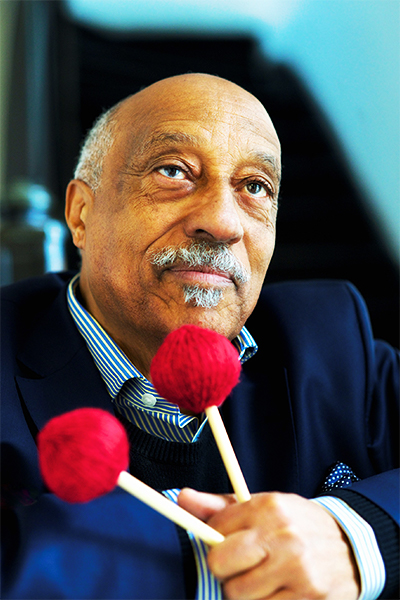Ten Ethiopian musicians you need to listen to right now
Delve into Ethiopia’s vast musical culture by seeking out these inspired artists
If you’ve never listened to Ethiopian music before, you’re in for a treat! Ethiopia has a huge musical culture, with styles spanning traditional music, song and dance from the country’s 80-plus culture groups; achingly beautiful liturgical song of the Orthodox Church dating back to the 6th century; and popular music from retro jazz grooves to the cheesiest pop singers and the hippest underground scenes. But what sets them apart is a unique musical system – a set of distinctive five-note (pentatonic) scales that makes Ethiopian music absolutely unmistakable. Here are ten must-hear artists to kick-start your journey into the wonderful world of Ethiopian music.

As influenced by the big names in Western soul and disco as the urban sounds of her childhood in Addis Ababa, Aster Aweke’s forward-thinking, globally-influenced pop made her Ethiopia’s first big star in Europe and North America in the 1990s, paving the way for singers such as Gigi, and Tigist Shibabaw of the band Bole2Harlem.

Saxophonist Getatchew Mekurya developed his unique playing technique by echoing the sound of the masinko and other traditional instruments, creating a harsh, exhilarating style that has been likened to free jazz masters Albert Ayler and Ornette Coleman. He was one of the main players in the golden age of Ethiopian music – known as the ‘Swinging Addis’ period – and later made boundary-breaking collaborations with Dutch punks The Ex.

Mahmoud Ahmed, with his golden voice, classy grooves and simply impeccable style, is one of those inescapable icons of the Swinging Addis period. His song ‘Erè Mèla Mèla’ and the album of the same name are rightly hailed as classics – they also inspired producer Francis Falceto to begin the indispensable Éthiopiques album series that brought Swinging Addis to the world.
Asnakech Worku is affectionately known as ‘The Lady with the Krar’ – she accompanied her soulful, folk-inspired songs by plucking on the traditional six-stringed lyre, the krar, at a time when Western instruments where becoming all the rage. Her romantic, evocative songs and her pioneering role as an actor on stage and screen have immortalised Asnakech in the hearts of Ethiopians.

Mulatu Astatke / Image: Courtesy Wasserman Music
Ethiojazz has become a truly global phenomenon over the past 20 years; Mulatu Astatke is its epitome. The vibraphonist and percussionist is credited with inventing the style during his time in London and New York in the 1960s, mixing post-bop jazz with Latin American rhythms and those unmistakable Ethiopian scales to create a metropolitan style that has become synonymous with cool.

On the global stage, Ethiojazz often harks to that golden era sound of the late ’60s and early ’70s, but the style didn’t stop there. There is also a lively modern jazz scene in Ethiopia, whose musicians strive for new and experimental ways in which jazz can flourish in the Habesha style. Pianist Samuel Yirga and guitarist Girum Mezmur are just two of the current vanguard of jazz in Ethiopia.
One of the most exciting scenes in Ethiopian music over the last decade is Ethiopiawi electronic, an intoxicating blend of house, dubstep and downtempo with distinctive Ethiopian textures, timbres and voices. The scene was birthed in the dark clubs and home studios of Addis Ababa and now has virtual tendrils across the global diaspora – it’s a sound spearheaded by Mikael Seifu alongside fellow producers Ethiopian Records and Dawit Eklund.

Emahoy (Sister) Tsege-Mariam Gebru stands alone within the world of music – she is a true individual, and no-one makes music like she does. A classically-trained musician and an Orthodox nun since she was 21, her solo piano compositions flow and cascade like water, full of tension and release, beauty and relaxation. She turns 100-years-old in 2023, and she has a new album on the way.

Becoming a pop star is an achievement – to stay as the top of the pops for 20 years is a legacy. Teddy Afro’s blend of polished pop and upbeat reggae with folk elements and veiled political lyrics have struck a chord with Ethiopian listeners, who have stayed loyal despite his many controversies (including a spell in prison) – he can still pull in crowds in their thousands.
There are few sounds more quintessentially Ethiopian than the music of the azmari. Azmaris are Amhara bards, who traditionally wandered the highlands spreading news and singing praises and cleverly veiled criticisms to patrons, accompanying themselves on masinko (one-string fiddle) or krar. Bitsat Seyoum is one of the most respected contemporary azmaris – check out her album Azmaris Urbains d’Éthiopie with masinko player Abebe Fekade.